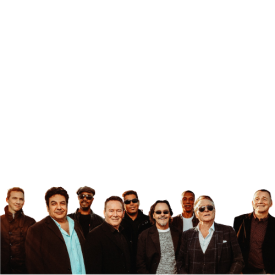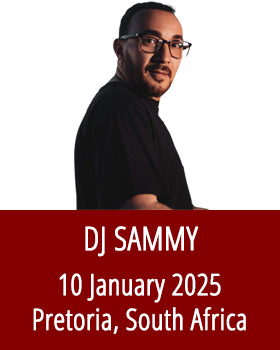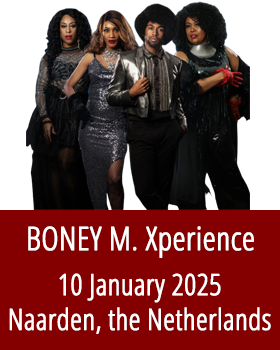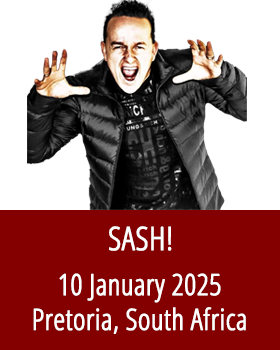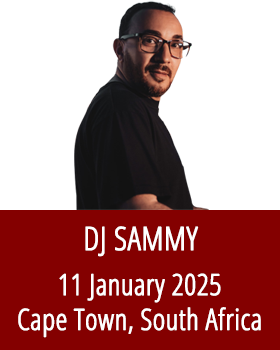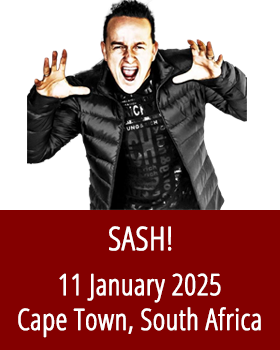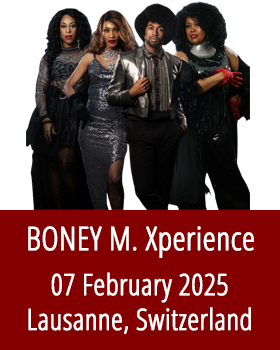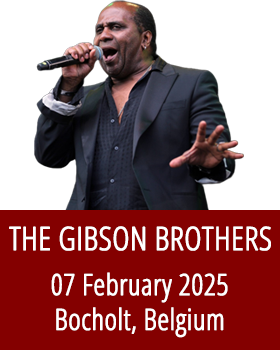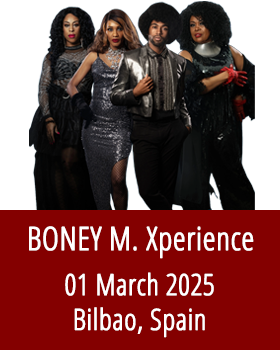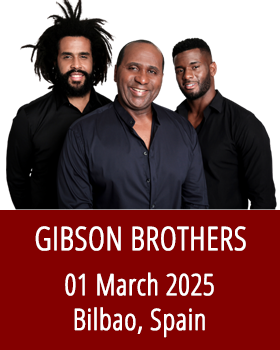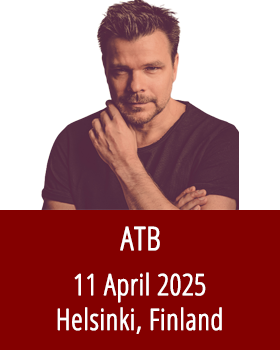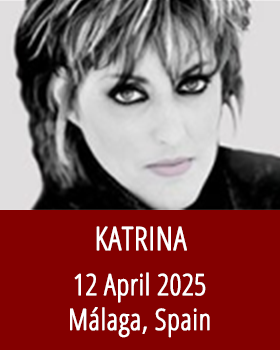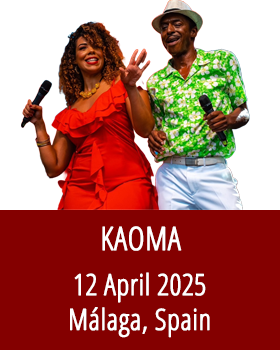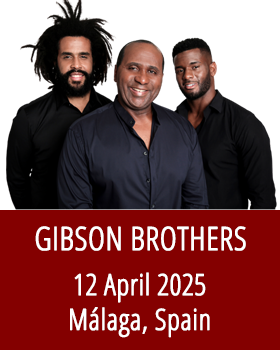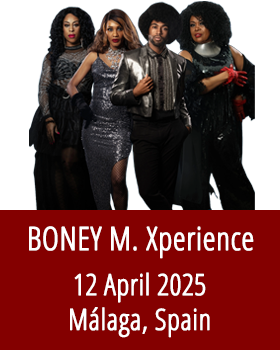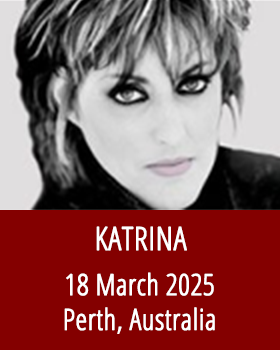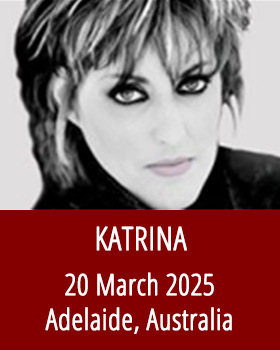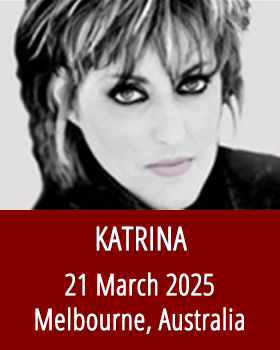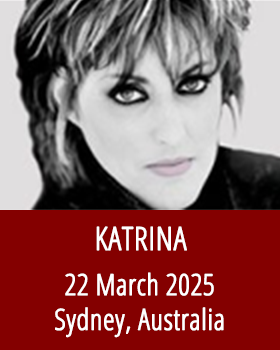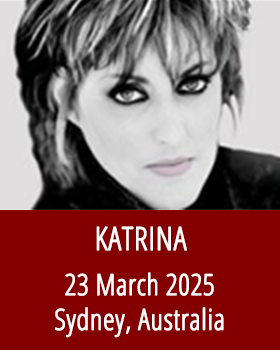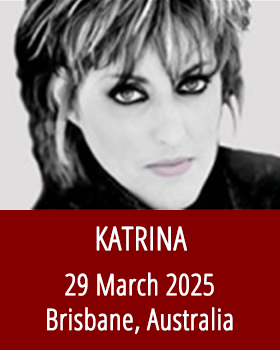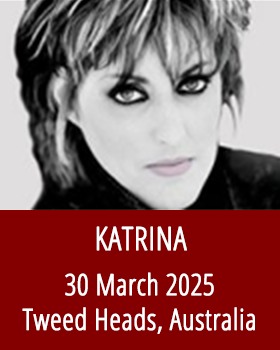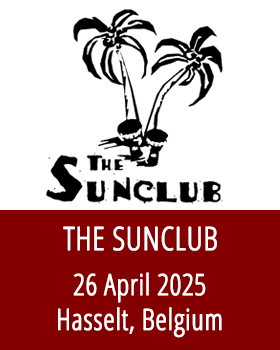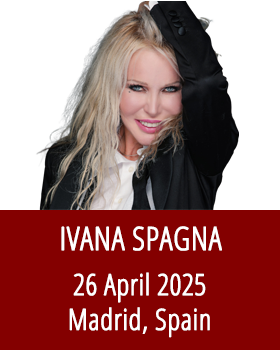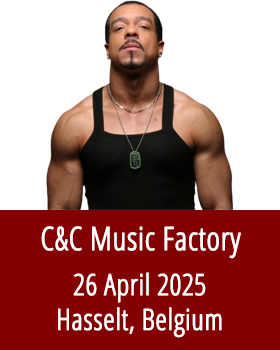UB40
If you are interested in booking UB40, please contact one of our agents: info@international-artists.com
—————————————————————————————————————————————————————————————
The story of UB40, and how this group of young friends from Birmingham transcended their working-class origins
to become the world’s most successful reggae band is not the stuff of fairytales as might be imagined. The group’s
led a charmed life in many respects it’s true, but it’s been a long haul since the days they’d meet up in the bars and
clubs around Moseley, and some of them had to scrape by on less than £8 a week unemployment benefit. The
choice was simple if you’d left school early. You could either work in one of the local factories, like Robin Campbell
did, or scuffle along aimlessly whilst waiting for something else to happen.
By the summer of 1978, something else did happen, and the nucleus of UB40 began rehearsing in a local basement.
Robin’s younger brother Ali, Earl Falconer, Brian Travers and James Brown all knew each other from Moseley
School of Art, whilst Norman Hassan had been a friend of Ali’s since school. Initially, they thought of themselves as
a “jazz-dub-reggae” band, but by the time Robin was persuaded to join and they’d recruited Michael Virtue and
Astro – who’d learnt his craft with Birmingham sound-system Duke Alloy – the group had already aligned
themselves to left-wing political ideals and forged their own identity, separate from the many punk and Two Tone
outfits around at that time. The group had nailed their colors to the mast by naming themselves after an
unemployment benefit form. Their political convictions hadn’t been gleaned secondhand either, but cemented in
place whilst attending marches protesting against the National Front, or rallies organized by Rock Against Racism.
By the time Chrissie Hynde invited them to tour with the Pretenders during the summer of 1980 and their debut
single “King b/w Food For Thought” had sailed into the UK Top 5, all the essential elements of UB40 were already in
place. Their line-up will remain unchanged for almost thirty years, and they will continue playing a mix of original
material and inspired choice of reggae covers in a style that’s instantly accessible with its bright melodies and
sweeping horn arrangements – one that’s allied to a formidable rhythm section, capable of holding its own with
anything from Jamaica.
UB40’s first album was released the following September, on Graduate Records. Their deal allowed them more
creative freedom than if they had signed with a major label. The cover artwork memorably duplicated an
unemployment benefit card, with the title “Signing Off” rubber-stamped in red, but it was the music that quickly
worked its way into the affections of a young, mainly student crowd with its knowing lyrics, solid reggae rhythms
and dubby, instrumental passages, offset by warm horn solos and Jamaican style scatting. There was nothing else
like it at the time. As a multi-cultural band from Birmingham, UB40 weren’t drawn into trying to sound “authentic,”
and there was considerably more depth to their music than that of many punk and 2Tone bands. “I’m a British
subject, not proud of it, whilst I carry the burden of shame,” they sang on one of the tracks. Accepting the truth of
their own situation amidst a sea of other reggae songs proclaiming black heritage gave us a valuable insight into
where UB40 were coming from. They were unafraid to stand up and be counted, and British audiences instinctively
loved them for it. “Signing Off” duly went to No. 2 in the UK and stayed on the nation’s album charts for 72 weeks.
At the onset of the nineties, Robert Palmer duetted with them on their next UK Top 10 hit, “I’ll Be Your Baby
Tonight,” and 808 State charted with a remix of “One In Ten.” Highlights such as these, whilst welcome, were then
dwarfed by the release of “Promises and Lies” which became the group’s biggest selling album, selling in excess of
nine million copies worldwide. The biggest hit from “Promises And Lies” was “Can’t Help Falling In Love“, which
brought the band their third UK No. 1 and would remain a favorite on American radio stations for years –
especially after its inclusion on the soundtrack of the 1993 Sharon Stone film “Sliver.”
By 1994, the constant touring had taken its toll and the band was ready for a well-earned rest – this after playing to
record crowds around the world, including South Africa, where they performed to over 250,000 people in total.
Virgin would fill the gap by releasing “The Best Of UB40 – Volume Two,” containing hits like “Kingston Town,” “Here
I Am” and more recent efforts such as “Bring Me Your Cup,” “Reggae Music” and “Until My Dying Day.” During their
sabbatical from UB40, several of the members worked on their own musical projects. Robin and Ali made a guest
appearance on Pato Banton’s No. 1 hit “Baby Come Back,” whilst Earl would have success producing house and
drum & bass tracks. Ali Campbell also released his debut solo album “Big Love,” which he’d recorded in Jamaica.
Their adventures in Jamaica will result in several, celebrated encounters with various reggae legends. The first,
UB40’s “UB40 Present The Dancehall Album,” featuring Jamaican acts like Beenie Man, Mad Cobra and Lady Saw,
appeared in 1998, and “UB40 Present The Fathers Of Reggae” in 2002. Robin has described the latter as one of the
highlights of their career, since it featured many of the artists who’d inspired UB40 (among them Toots Hibbert,
John Holt, Alton Ellis and the Mighty Diamonds), singing the group’s own material. Were it needed, the “Fathers”
set offered proof of the respect UB40 have always been accorded in Jamaica, and especially among the island’s
artists and musicians.
Other landmark shows would soon follow, including concerts in South Africa, and at a peace concert in the Sri
Lankan capital of Colombo. One of them, in Switzerland, was later released as “Live In at Montreux.” In 2003, they
received an Ivor Novello Award for International Achievement and secured another Top 10 album with the
“Platinum Collection”, a triple box set comprised of the entire “Labour of Love” series. By now, UB40 had been
favorites of the British public for well over two decades. It was therefore fitting they should provide the official
anthem for the England rugby team’s triumphant 2003 World Cup campaign in Australia. “Swing Low,” taken from
the “Homegrown” set, will become the group’s 49th UK chart single. UB40 have now had 51 chart successes, the
only bands to have notched up more hits are Status Quo and Queen, but for UB40 to achieve this distinction by
playing reggae music is nothing short of miraculous.
Two years later, on the 25th anniversary of their recording debut, the band released “Who You Fighting For.”
Acclaimed not only as a return to form, but also an artistic triumph,” Who You Fighting For” was distinguished by
UB40’s decision to record once more as “a live” band – i.e., playing all together in the studio. Its success was aided
by a clutch of powerful message songs that wouldn’t have sounded at all out of place on their first few albums. The
questioning of authority (including Britain and America’s decision to invade Iraq) and steadfast allegiance to
working-class values was there for all to see, and yet the Grammy nominated “Who You Fighting For” also
contained its fair share of love songs, such as “One Woman Man,” “Kiss And Say Goodbye” and a winning cover of
Matumbi’s “After Tonight.”
At the beginning of 2008, Ali Campbell decided to leave the band in order to pursue a solo career. With a minimum
of fuss, he was replaced by another Campbell brother, Duncan, who has a voice that’s virtually indistinguishable
from Ali’s. Duncan had been invited to join the band at their inception, but declined. However, some thirty years
later alongside the other UB40 vocalists he has made his presence count on the latest album “TwentyFourSeven,”
which received widespread acclaim on its release during the summer of 2008. Following on from “Who You
Fighting For,” “TwentyFourSeven” was again recorded “live” in the studio, and thus showcases UB40 at their best.
Not for the first time, the choice of material was dominated by the kind of searching, political messages they’d long
been famous for. Songs like “Rainbow Nation,” “End Of War,” “Oh America” and “Securing The Peace” rank alongside
their best-ever reality tracks, except with guest singer Maxi Priest taking over lead vocals on “Dance Until The
Morning Light” and a cover of Bob Marley’s “I Shot The Sheriff,” the mood is celebrationary as well. Freed of the
need for hit singles (if not hit albums), UB40 sound rejuvenated, as if they’ve rediscovered the creative spark that
inspired them in the first place. The results make essential listening, reaffirming their reputation as the world’s
most successful reggae band as they continue to reach out to audiences that are impossible to categorize by race,
age or nationality.
This year UB40 have had yet another busy tour schedule including such places as, USA, Italy, Germany, Spain and
Slovakia to name a few. In between this extensive touring schedule they have also been having a great time
recording “Labour of Love IV,” which they have now completed and it is due for release in February 2010. Alongside
this they have also made time to do a benefit gig at the Rainbow pub in Digbeth, Birmingham. The gig that took
place on the 3rd of November was to help the Rainbow raise money to sound proof their roof as they had a noise
abatement order slapped on them by Birmingham Council. Needless to say this was a resounding success and not
only raised a lot of money for an extremely good cause, it gave around 500 fans an opportunity to see the band up
close and personal for the first time in many years. UB40 are now currently in rehearsals for the much anticipated
UK tour which begins in Killarney on the 19th of November.
—————————————————————————————————————————————————————————————
If you are interested in booking UB40, please contact one of our agents: info@international-artists.com
If you are interested in other artists, please check our Artist Roster


